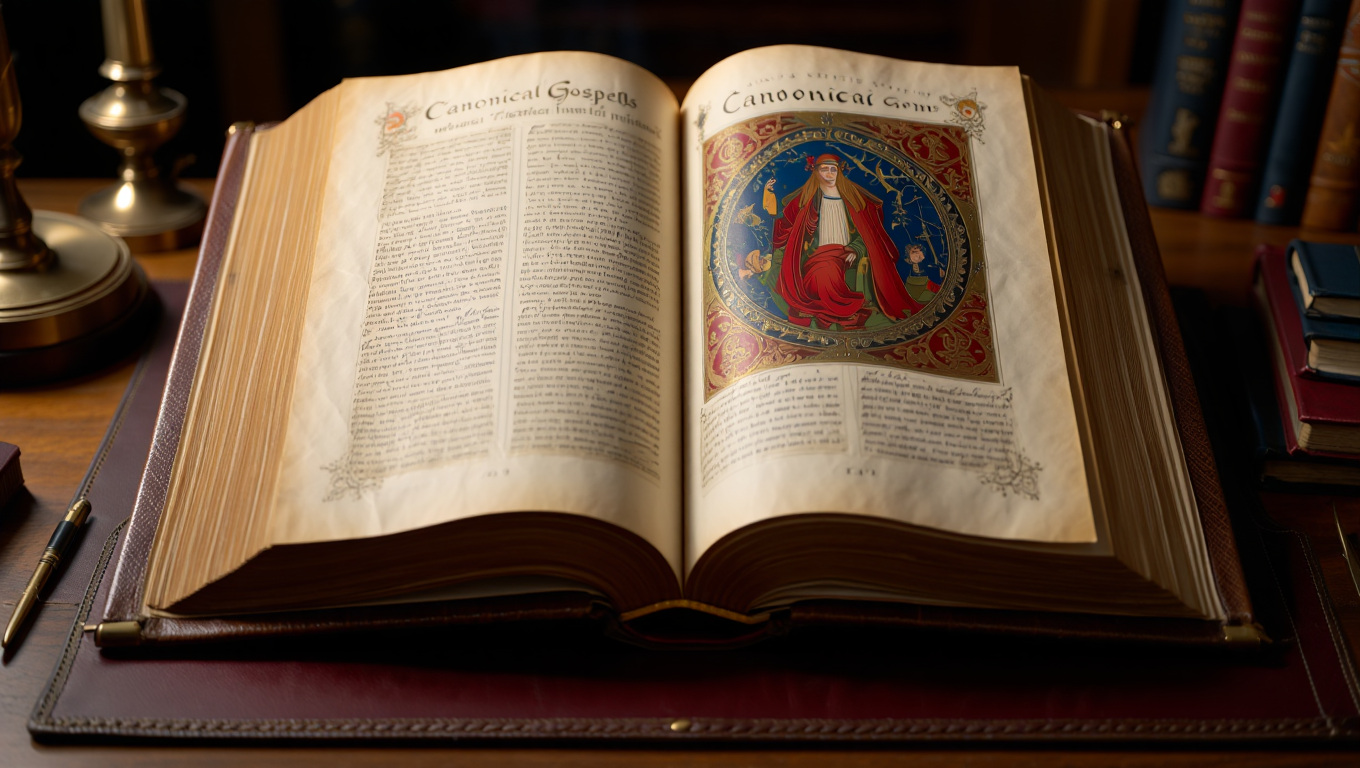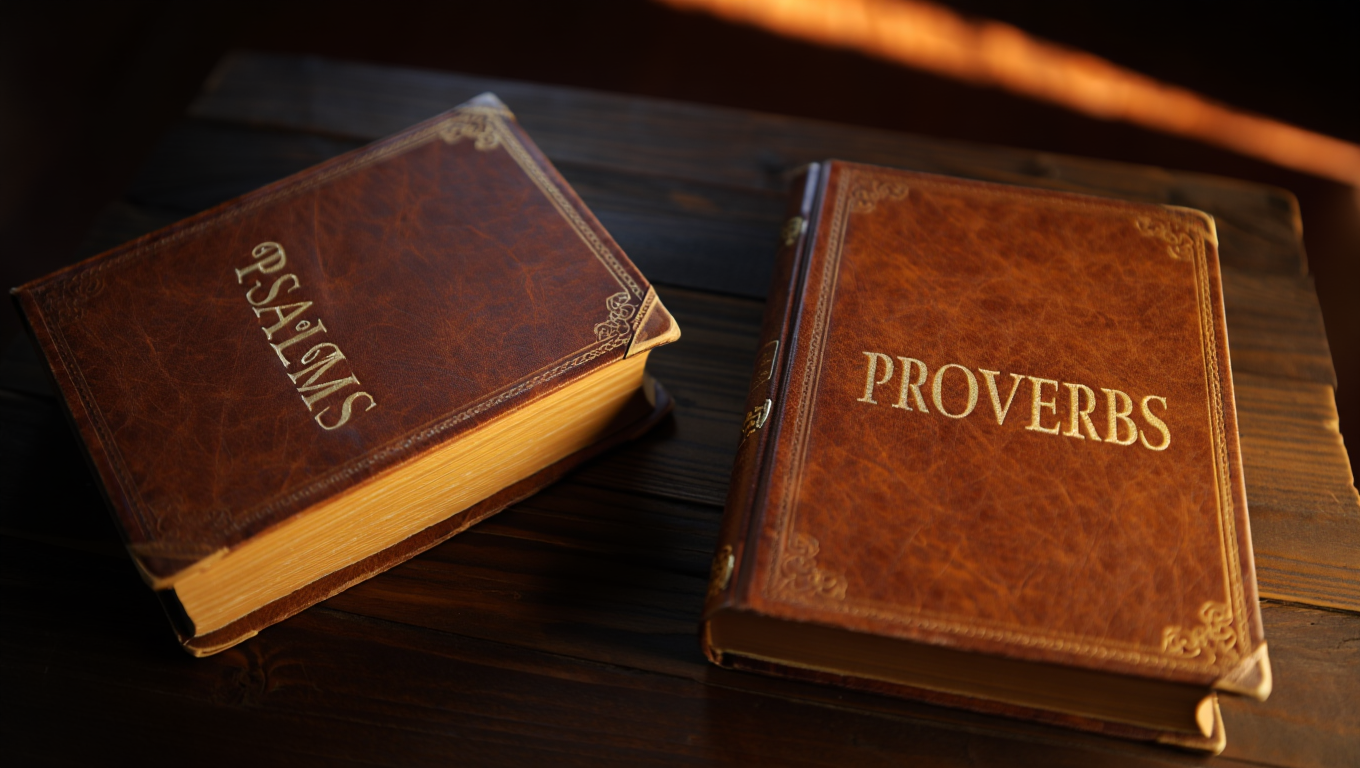The Old Testament Apocrypha and Deuterocanonical books hold a significant place in religious texts, but understanding their differences is crucial for a comprehensive grasp of biblical literature. The Old Testament Apocrypha refers to a collection of books included in the Septuagint Greek Bible but not in the Hebrew Bible. These books include The First Book of Esdras, Tobit, Judith, Additions to Esther, The Wisdom of Solomon, Ecclesiasticus, Baruch and The Letter of Jeremiah, Additions to Daniel, The Prayer of Manasseh, and The First and Second Book of the Maccabees.
In contrast, the Deuterocanonical books are recognized as canonical by the Catholic Church but not by Jews and Protestants. The Council of Trent confirmed the canonicity of these books, except for 1 and 2 Esdras and The Prayer of Manasseh, making them part of the Old Testament canon for the Catholic Church.
Key Takeaways:
- The Old Testament Apocrypha comprises books included in the Septuagint but not the Hebrew Bible.
- The Deuterocanonical books are recognized as canonical by the Catholic Church but not by Jews and Protestants.
- The Council of Trent officially declared the canonicity of these books for the Catholic Church.
- These books have had a significant theological impact within the Catholic tradition, supporting various Catholic doctrines and practices.
- The canonicity of the Old Testament Apocrypha and Deuterocanonical books has been a topic of debate among biblical scholars.
Origins of the Old Testament Apocrypha and Deuterocanonical Books
The Old Testament Apocrypha and Deuterocanonical books have their origins in ancient texts and translations. The Apocrypha, a collection of books not included in the Hebrew Bible, can be traced back to the Septuagint, a Greek translation of the Hebrew Scriptures. During the Hellenistic period, when Greek culture influenced the Jewish community, these additional books were included in the Septuagint, which became widely used by Greek-speaking Jews and later by early Christians.
The influence of the Septuagint continued through the work of Saint Jerome, who translated the Bible into Latin in the 4th century. Jerome’s translation, known as the Vulgate, included the Old Testament Apocrypha, with the exception of a few books. The Vulgate became the standard Bible for Western Christendom and played a crucial role in shaping the medieval Christian worldview.
Although the Old Testament Apocrypha gained acceptance within the Catholic Church, it faced opposition from the Protestant Reformers during the 16th century. They regarded the Hebrew Bible as the authoritative text and therefore excluded the apocryphal books. This decision was influenced by their emphasis on the original Hebrew sources and a desire to adhere closely to the biblical canon accepted by Jews. Consequently, the Protestant Bibles published during the Reformation did not include the Old Testament Apocrypha.

The Septuagint and the Vulgate
| Septuagint | Vulgate |
|---|---|
| The Greek translation of the Hebrew Bible | The Latin translation of the Bible by Saint Jerome |
| Included the Old Testament Apocrypha | Included most of the Old Testament Apocrypha |
| Used by Greek-speaking Jews and early Christians | Standard Bible for Western Christendom |
In summary, the Old Testament Apocrypha and Deuterocanonical books originated from the Septuagint, a Greek translation of the Hebrew Bible. These books were included in the Septuagint and later incorporated into the Vulgate, a Latin translation by Saint Jerome. While the Catholic Church accepted these books as part of the biblical canon, the Protestant Reformers excluded them due to their emphasis on the Hebrew sources and the authority of the Hebrew Bible. These origins and contrasting perspectives on the canonicity of the Old Testament Apocrypha and Deuterocanonical books continue to shape the understanding and interpretation of these texts within different Christian traditions.
Canonical Status of Old Testament Apocrypha and Deuterocanonical Books
The canonical status of the Old Testament Apocrypha and Deuterocanonical books has been a topic of debate and disagreement among different religious traditions. While these books are recognized as canonical by the Catholic Church, they are not considered part of the biblical canon by Jews and Protestants. The Council of Trent in 1546 played a significant role in solidifying the canonical status of these books for the Catholic Church.
According to the Council of Trent, the apocryphal books found in the Vulgate translation of the Bible, with the exception of 1 and 2 Esdras and The Prayer of Manasseh, are deemed canonical. This means that the Catholic Bible includes a total of forty-six books in the Old Testament, with thirty-nine being “protocanonical” or recognized as canonical by both Jews and Protestants, and seven being “deuterocanonical” or recognized as canonical only by the Catholic Church.
| Canonical Books (Catholic Canon) | Non-Canonical Books (Apocrypha) |
|---|---|
| Genesis | Additions to Esther |
| Exodus | The Wisdom of Solomon |
| Leviticus | Ecclesiasticus |
| Numbers | Baruch |
| Deuteronomy | The Letter of Jeremiah |
| Joshua | Additions to Daniel |
| Judges | The Prayer of Manasseh |
| Ruth | The First and Second Book of the Maccabees |
| 1 Samuel | |
| 2 Samuel | |
| 1 Kings | |
| 2 Kings | |
| 1 Chronicles | |
| 2 Chronicles | |
| Ezra | |
| Nehemiah | |
| Tobit | |
| Judith | |
| Esther | |
| Job | |
| Psalms | |
| Proverbs | |
| Ecclesiastes | |
| Song of Solomon | |
| Isaiah | |
| Jeremiah | |
| Lamentations | |
| Ezekiel | |
| Daniel | |
| Hosea | |
| Joel | |
| Amos | |
| Obadiah | |
| Jonah | |
| Micah | |
| Nahum | |
| Habakkuk | |
| Zephaniah | |
| Haggai | |
| Zechariah | |
| Malachi |
While the Catholic Church affirms the canonicity of the Old Testament Apocrypha and Deuterocanonical books, Protestants do not regard these books as inspired or authoritative for faith and practice. They often refer to them as the “Apocrypha” and consider them useful for historical and devotional purposes, but not on par with the canonical books of the Bible. The theological differences surrounding the canonicity of these books have contributed to divisions between Catholic and Protestant Christianity.
Theological Impact of Old Testament Apocrypha and Deuterocanonical Books
The Old Testament Apocrypha and Deuterocanonical books have had a profound theological impact, particularly within the Catholic tradition. These religious texts have been utilized to support various Catholic doctrines and practices, such as purgatory and the saying of masses for the dead. The inclusion of these books in the Catholic Bible has contributed to the development of unique theological beliefs and rituals.
However, it is important to note that Protestants do not accept the authority of the Old Testament Apocrypha and Deuterocanonical books. They do not consider these texts as inspired or authoritative for faith and practice. This difference in the recognition of these books as scripture has resulted in significant theological disparities between Catholic and Protestant Christianity.
For Catholics, the inclusion of the Deuterocanonical books in the biblical canon provides a theological foundation for specific teachings and practices. These books offer additional insights into various aspects of faith and serve as a basis for doctrinal interpretations. The theological impact of these texts extends beyond specific beliefs, influencing the overall understanding of God, salvation, and the nature of the divine-human relationship.
| Key Points | Catholic Tradition | Protestant Tradition |
|---|---|---|
| Theological Authority | Recognized as inspired and authoritative | Not considered inspired or authoritative |
| Doctrinal Support | Utilized to support specific teachings and practices | Not utilized as a basis for doctrine |
| Divine-human Relationship | Influences understanding of God and the nature of the divine-human relationship | No impact on the understanding of God or the divine-human relationship |
The theological impact of the Old Testament Apocrypha and Deuterocanonical books extends beyond the Catholic Church. These texts have been subjects of debate and discussion among biblical scholars from various religious backgrounds. The unique perspectives and theological insights found in these books continue to shape religious discourse and contribute to the ongoing exploration of faith and scripture.
Old Testament Apocrypha and Deuterocanonical Books in Jewish and Protestant Canons
While the Old Testament Apocrypha and Deuterocanonical books hold canonical status in the Catholic Church, they are not recognized as part of the Jewish canon. Similarly, Protestants do not include these books in their canon, although there are variations among Protestant Bibles regarding their inclusion or exclusion.
The Jewish canon, also known as the Hebrew Bible or the Tanakh, consists of twenty-four books, which are divided into three sections: the Torah (the five books of Moses), the Nevi’im (the Prophets), and the Ketuvim (the Writings). The Old Testament Apocrypha and Deuterocanonical books are not considered part of this authoritative collection of sacred texts by the Jewish community.
Protestants, following the tradition of the early Reformers, also exclude the Old Testament Apocrypha and Deuterocanonical books from their canon. However, some Protestant Bibles include these books in a separate intertestamental section called the Apocrypha. This section is not considered as authoritative as the rest of the biblical text, but it is included for historical and educational purposes.
| Jewish Canon | Protestant Canon |
|---|---|
|
|
The exclusion of the Old Testament Apocrypha and Deuterocanonical books from the Jewish and Protestant canons is based on various factors, including the lack of recognition by early Jewish authorities and the belief that these books lack the same level of divine inspiration as the rest of the biblical texts. The canonicity of these books continues to be a subject of debate and discussion among biblical scholars.
Conclusion
The difference between the Old Testament Apocrypha and Deuterocanonical books is significant and has shaped the formation of the Jewish, Catholic, and Protestant canons. The Apocrypha consists of books that were included in the Septuagint but not in the Hebrew Bible, while the Deuterocanonical books are recognized as canonical by the Catholic Church but not by Jews and Protestants.
These differences in the canonicity of these books have theological implications for the respective traditions. The Apocrypha has played a significant role in supporting various Catholic doctrines and practices, such as purgatory and the saying of masses for the dead. However, Protestants do not accept the authority of these books and do not consider them inspired or authoritative for faith and practice.
The Jewish canon does not include the Old Testament Apocrypha and Deuterocanonical books, and they are not considered true books of the Hebrew Bible by the Jewish community. Protestants also do not include these books in their canon, although some Protestant Bibles may have an intertestamental section called the Apocrypha. The canonicity of these books has been a topic of debate and discussion among biblical scholars.
FAQ
What are the Old Testament Apocrypha and Deuterocanonical books?
The Old Testament Apocrypha refers to the books that were included in the Septuagint Greek Bible but not in the Hebrew Bible. Deuterocanonical books are recognized as canonical by the Catholic Church but not by Jews and Protestants.
Where did the Old Testament Apocrypha and Deuterocanonical books come from?
The Old Testament Apocrypha originated from the Septuagint, a Greek translation of the Hebrew Bible. The Deuterocanonical books were included in Jerome’s Latin translation called the Vulgate.
What is the canonical status of the Old Testament Apocrypha and Deuterocanonical books?
The Council of Trent in 1546 declared the apocryphal books in the Vulgate as canonical for the Catholic Church, except for 1 and 2 Esdras and The Prayer of Manasseh. Jews and Protestants do not consider these books as part of the biblical canon.
What is the theological impact of the Old Testament Apocrypha and Deuterocanonical books?
The Apocrypha has been used to support various Catholic doctrines and practices. Protestants, however, do not accept the authority of these books and do not consider them inspired or authoritative for faith and practice.
Do Jewish and Protestant canons include the Old Testament Apocrypha and Deuterocanonical books?
Neither the Jewish nor the Protestant canon includes these books. They are not considered true books of the Hebrew Bible by the Jewish community, and Protestants do not consider them authoritative.
What is the difference between the Old Testament Apocrypha and Deuterocanonical books?
The Apocrypha includes books that were in the Septuagint but not in the Hebrew Bible. The Deuterocanonical books are recognized as canonical by the Catholic Church but not by Jews and Protestants.
 Skip to main content
Skip to main content


